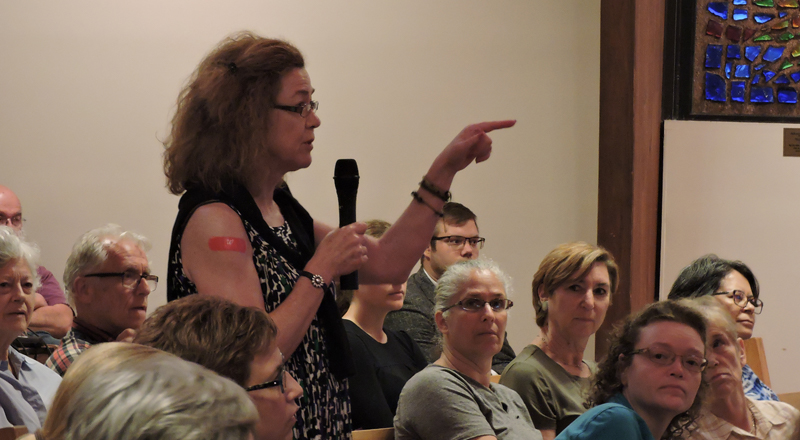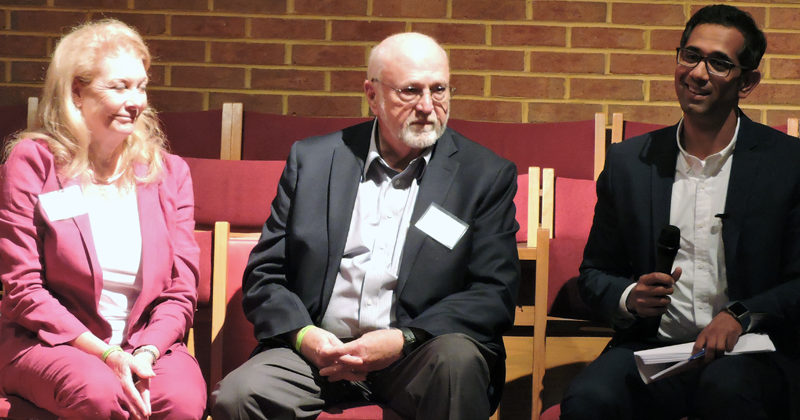
On Monday night, we joined forces with the Atlanta Regional Commission (ARC), the region’s top urban planning agency, to host a needed discussion on affordable housing issues in metro-Atlanta. Despite the pouring rain, roughly 100 attendees came out to engage in this important conversation.
Some of those in attendance included City Councilman John Paulson, City Councilman Andy Bauman, Executive Director of the Sandy Springs Council of Neighborhoods Rhonda Smith, as well as Andrea Settles, who serves on the Planning Commission.
Sam Shenbaga with the ARC presented some of the issues and potential solutions to this problem.
Here are just a few of the highlights:
- The Atlanta metro area, including Sandy Springs, is the sixth worst in the entire United States for affordable housing. For so long, businesses were flocking to Atlanta instead of places like Los Angeles, Chicago and San Francisco, However, in recent years Atlanta has begun to lose its edge due to these rising costs. If we want to regain that edge, housing costs must come down.
- Our metro area is also one of the worst for career upward mobility, with only a 4% chance of rising out of poverty once you fall into it. Los Angeles, for example, has a 10% mobility rate. This only exacerbates the problem of rising costs and lack of affordable housing. When 44% of our families in Sandy Springs are spending 30% or more of their income on housing, it’s impossible to save and get ahead. Plus, how can employees move upward in their careers when housing instability is affecting our students’ performance at school. Ultimately, it’s a vicious cycle.
The bottom line – Sandy Springs is a part of this problem and and we must find a way through preservation and creative municipal incentives to bring housing costs down, or it’s going to start having a much larger negative impact on our city’s economy.
Now let’s talk about some potential solutions.
The key takeaway is that there is no single answer to affordable housing issues. Instead, we need a variety of incremental changes. This includes building coalitions between governments, community organizations and nonprofits to work on building solutions that work for everyone in every part of our communities. City officials and residents need to be informed of the possible unintended consequences of development. This is an integral part of this, so that we can maintain a diverse and stable selection of workforce housing.
Monday night’s event was extremely successful and educational. We look forward to taking what we’ve learned from this event and applying it to future strategies as we continue to fight this crisis. Make sure to like us on Facebook to keep up with all of our work, get educated and be in the know about future events


